For most of us, our career choices revolve around our own quality of life. We ask for raises, work flexibility, accept promotions, negotatiate extra vacation days or benefits. But for some, careers revolve around other people's quality of life. Meet Morgan Romans, a physical therapist in Spokane, Washington who spends her days improving other people's days. From elderly retirees suffering back pain to athletes attempting to recover from unexpected injuries, Morgan specializes in understanding how a person's body works, but also how that body helps them achieve their goals and live their lives.
Her work revolves around her values, but also a passion for movement and physical empowerment. It's a career dedicated to keeping us all on our feet regardless of where those feet take us each day.
Her Starting Point
Growing up, were you always interested in sports and physical activity? When did you know you wanted to work in health and therapy?
I was always active playing basketball and soccer when I was younger, hiking the many trails of the Pacific Northwest, biking, and fishing. I always knew I wanted to work in the health care field at a very young age as I've always been extremely interested in medicine and the gratification of improving the quality of one's life. I discovered I wanted to specifically pursue a career in Physical Therapy after working in a developmental program for children with Autism. I noticed the strong positive effect physical activity and exercise had on these kids to increase their participation, communication, and overall connection in a shared activity. These many experiences motivated me to pursue a higher degree to help people in many different ways through Physical Therapy.
Tell us a little about your studies and the process of getting your PhD. You got an undergraduate degree in Biology and then went on to get a doctorate in Physical Therapy. Is that typical for people in your field? What’s did you learn/work on specifically in your doctorate? Any field work?
I received my Bachelors of Science degree in Biology with minors in Psychology and Health Care Social Issues, which fulfilled the requirements for admission into a graduate school program for Physical Therapy. Many of my classmates in graduate school also had undergraduate degrees in biology, chemistry, and kinesiology, as this was an important foundation for our graduate studies. During graduate school, I studied the musculoskeletal and neurological systems ranging from pediatrics to geriatrics, manual therapy techniques, and developed a strong emphasis in the anatomy and biomechanics of the human body. The majority of Physical Therapy graduate school programs require their students to complete an average of three clinical rotations, which exposes the student to skilled nursing facilities, home health services, acute hospital settings, and outpatient orthopedic clinics across the lifespan.
Let’s talk about some of your early jobs after graduation. Your research in school and work after graduation revolved around autism, development, and intervention. What drew you to that area specifically? Why did you decide to shift your focus from work as a developmental therapist to a physical therapist?
During my undergraduate work, I had the privilege of assisting with a research program focusing on the early intervention of children with Autism. This was a very interesting field to me so I pursued a job as a Developmental Therapist in a developmental program for children with Autism. While working in this setting, I had the privilege of observing the Physical Therapists in their delivery of care and all the skills and techniques they had in their tool boxes to help these kids live a more fulfilling life. I realized at this point that I wanted to pursue my degree in Physical Therapy so that I may be able to improve the quality of life for both kids with Autism and individuals across the lifespan.
Did you make any mistakes when you were young and trying to find your career path? What would you do differently if you could?
I wouldn't call any of my choices when I was younger as mistakes on the path to find my career. I thought a lot about different career paths when I was still discovering who I was and what inherent values were important to me to exude in my career. All the steps and choices I made when I was younger were absolutely necessary to lead me into the field that allows me to improve the quality of another's life and continually learn more about effective physical therapy techniques and the quality of optimal movement and function. It doesn't feel like work when you love what you do every day, and that I am inherently blessed and thankful for.
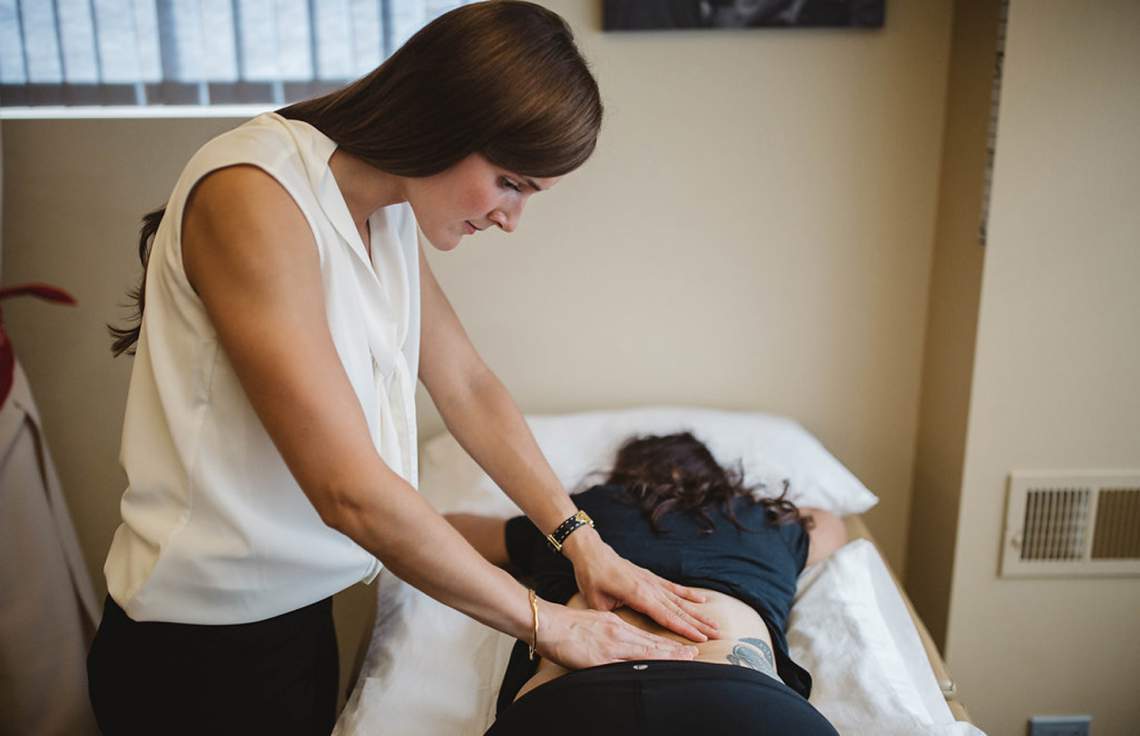
Her Big Break
Tell us a little about a day in the life of a physical therapist (we know no day’s typical, but just give us an example). Anything about your day that would surprise us?
A day in the life of a Physical Therapist is typically really fun! As an outpatient orthopedic Physical Therapist, I work in a fast paced, challenging clinic that includes patients across the lifespan that may have any type of musculoskeletal issues, whether it be due to a traumatic incident, post operative conditions, or chronic pain symptoms. On average, I treat about 15 patients per day on 40-minute time blocks with both new evaluations, re-evaluations, and follow up visits on a daily basis. The majority of Physical Therapists have quite a lot of documentation to do, so not only is time devoted to patient care but also filling out charts and documenting treatment through an electronic medical record.
Physical therapy is a largely male-dominated field. Do you feel your experiences have been different because you’re a woman? How does your perspective as a woman change/affect the way you work in your field (if at all)? Any advantages?
As a woman in the Physical Therapy field, I don't feel that my experience is particularly different from my male colleagues. I believe that Physical Therapy is attracting more females to the career field due to the flexibility of the career field and the overall satisfaction of being a Physical Therapist. With the wide range of Physical Therapy services, having an equal balance of male to female providers with many different specialties and niches is a huge plus to the career. Being a male or female should not change the perspective or way in which one treats, but rather the attitude, demeanor, and ability to develop a rapport with the patient is ultimately going to dictate and affect the way in which you work.
What’s the most challenging part about your work?
The most challenging part of my work is helping the complex patient achieve optimal function and improve their quality of life who has tried, yet failed prior services, including chiropractic, massage, acupuncture, surgery, and even physical therapy. However, this is also the most gratifying part of my work because helping someone overcome long-term pain is extremely fulfilling. I work to determine the true cause of an individual's symptoms, and treating them holistically to ultimately make the individual an improved biomechanical machine. Musculoskeletal pain does not just present with those symptoms alone, it also comes with psychological, emotional, and spiritual changes. Therefore, it is critical to treat the patient as a whole in order to achieve the most optimal functional movement and quality of life.
For someone interested in studying physical therapy, what’s your best piece of advice for them?
My best piece of advice for someone interested in studying Physical Therapy is to observe a Physical Therapist working in multiple settings, including in a hospital, an orthopedic clinic, in pediatrics, a skilled nursing facility, etc. Physical Therapy is a wonderful career path because there are so many different areas of specialty to work in, it is very gratifying work to help someone achieve their personal goals, and no matter what stage of life you are in personally, you can fit your work to meet those needs.
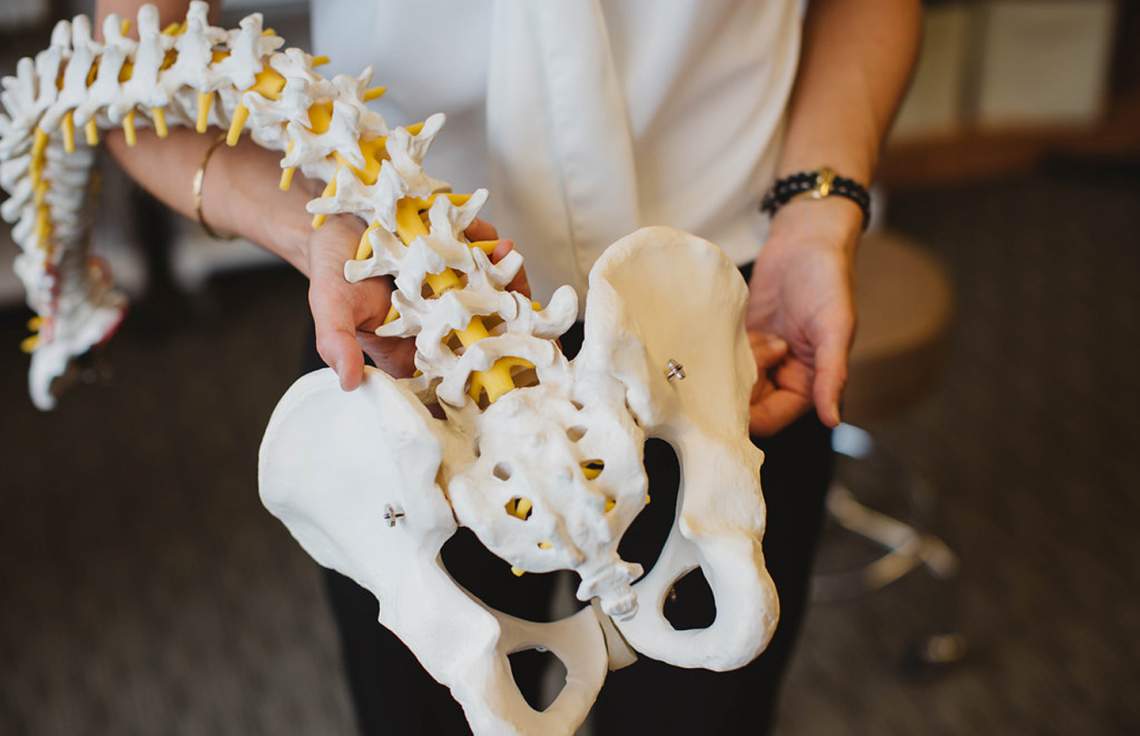
Her Perspective
What’s your #1 health and wellness tip or piece of advice?
Be consistent! It does not matter what type of exercise or physical activity you enjoy, whether it be running, biking, or swimming, just be consistent with it. You have to make it a habit and set that time aside from work, kids, and life, to exercise your body and mind to achieve optimal health and reach your personal goals. As you develop the consistency of daily exercise, it's then important to incorporate a balance of cardiovascular, flexibility, and strength training. One needs to make a consistent commitment to daily exercise, eating a whole foods and plant based diet, drinking plenty of water, and expanding spirituality through meditation in order to achieve personal health and fitness goals.
What are your personal markers for success? How can you tell you’ve been successful professionally?
My personal markers for success in my profession include setting short term and long term goals. For instance, I am currently studying to sit for my Manual Therapy Certification this coming winter, and then my Orthopedic Specialist Certification in 2017. Developing these goals helps me to continue to learn academically and challenge myself to always be up to date on current evidence-based practice. In addition, I feel professionally successful when I help my patient reach their personal goals, whether it be for the triathlete who had chronic shoulder pain, but can now compete in the Ironman, or for the elderly woman who had chronic back pain, but can now return to playing with her grandkids.
After a long work week, how do you de-stress or unwind?
I typically like to de-stress by enjoying the beautiful outdoors of the Spokane region with my partner in crime and our 2 Red Timber Wolf hybrids. We love to do a lot of outdoor rock climbing, plant collecting, making tinctures, fishing along the Spokane River, and working on our heirloom garden. Spending time with my family and friends, and being outdoors is absolutely the key to relieving any sort of tension or stress that may be brewing.
And finally, what do you wake up looking forward to? What’s next for your career?
Everyday I wake up looking forward to running my dogs in the trails behind my house and then jumping on my bike to commute downtown to the clinic. Daily morning exercise always preps the day ahead of me and energizes me for the work day. As far as the next step in my career, I plan to achieve 2 more specific certifications to further my manual therapy and clinical reasoning skills, and then to also eventually become involved in teaching in a Physical Therapy graduate program, specifically in the study of anatomy and biomechanics.
You May Also Like
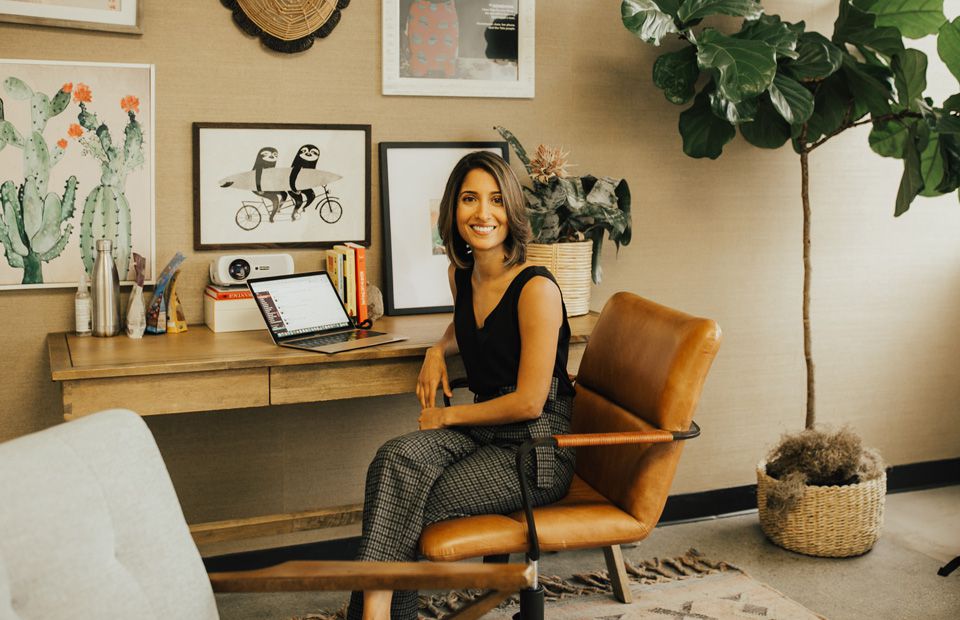
Technology
A Tech Founder on Why Being an Outsider Is a Strength
"I actually think most successful founders are rebels, of a sort. We’re trying to do new things and take on entrenched systems or ways of thinking. What makes me and our company different is that we’re outsiders."
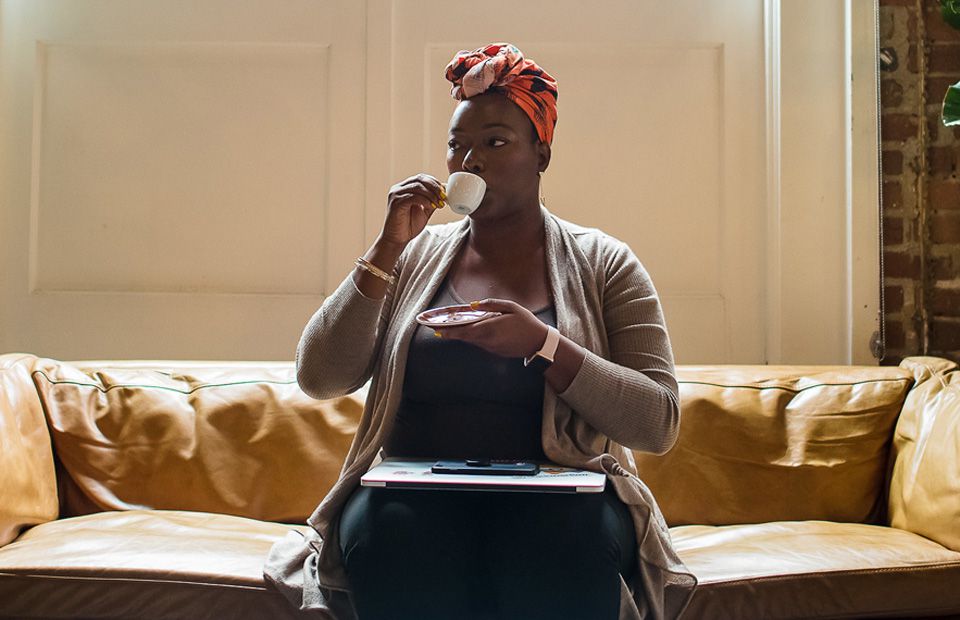
Technology
Omoju Miller—Tech Veteran, Leader, and Volunteer Advisor to the Obama Administration—on The Crucial Role of Creativity in the Tech Industry
"If you are in an environment where you feel marginalized, leave. Don’t try to change it. Go and look for a place that sees you and lets you be you."
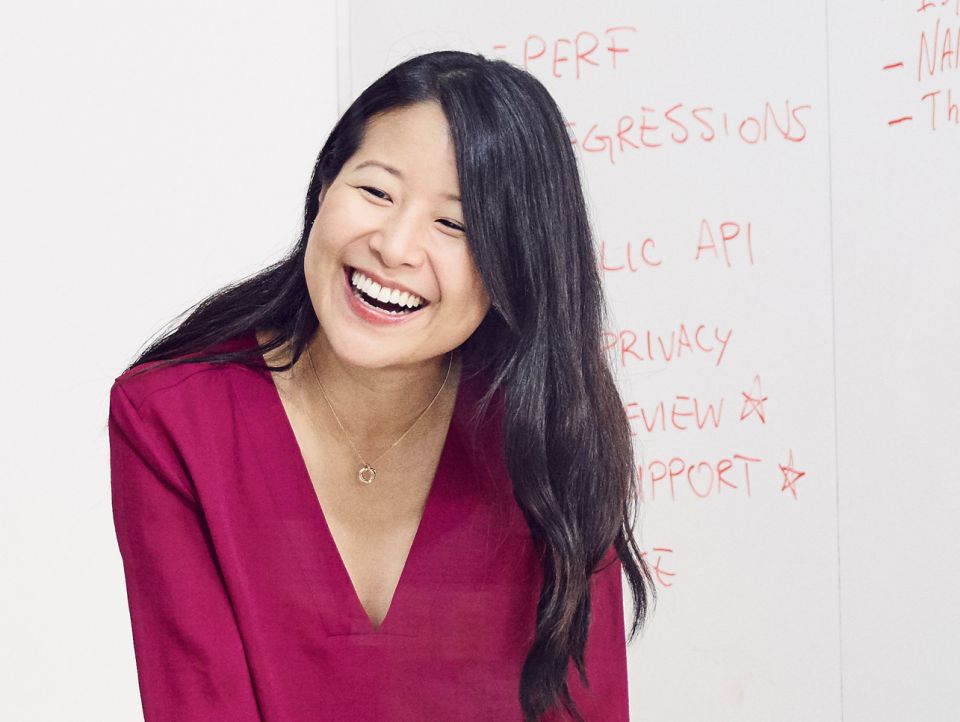
Technology
Sharing Stories as a Software Engineer
We sat down with Apple software engineer Emilie to learn about her day-to-day working at Apple along with what it takes to run the perfect meeting and her favorite ways to unwind.

Technology
Creating Impact with Apple
We sat down with Apple's Senior Developer Partner Relations Advisor, Cris, to learn about what it takes to create a lasting impact within a large company. She shares a typical day in the life, her favorite book recommendations, and her top four tips to running a meeting.
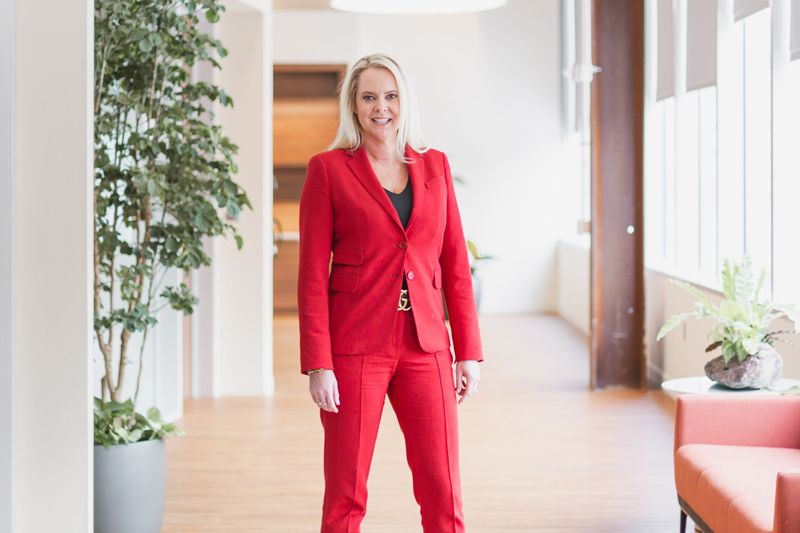
Technology
Salesforce’s Senior Vice President of Sales on Unconscious Bias, Failure, and Innovative Leadership
"Do not be afraid to fail, just bring your best self to the table."
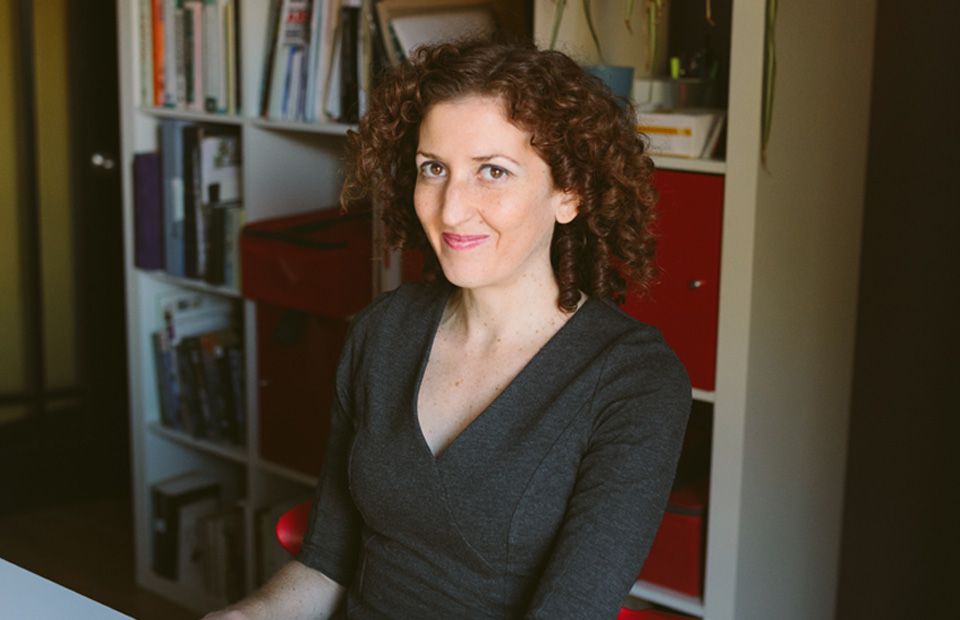
Technology
A Director of Engineering on Tech + Leadership
"I don’t believe in 'having it all'. If you spend more time on one thing, then you spend less time on another thing. All we can do is make choices on how to spend our time."
Get the Best Career Advice Delivered To Your Inbox
Join our newsletter to stay in the loop.
